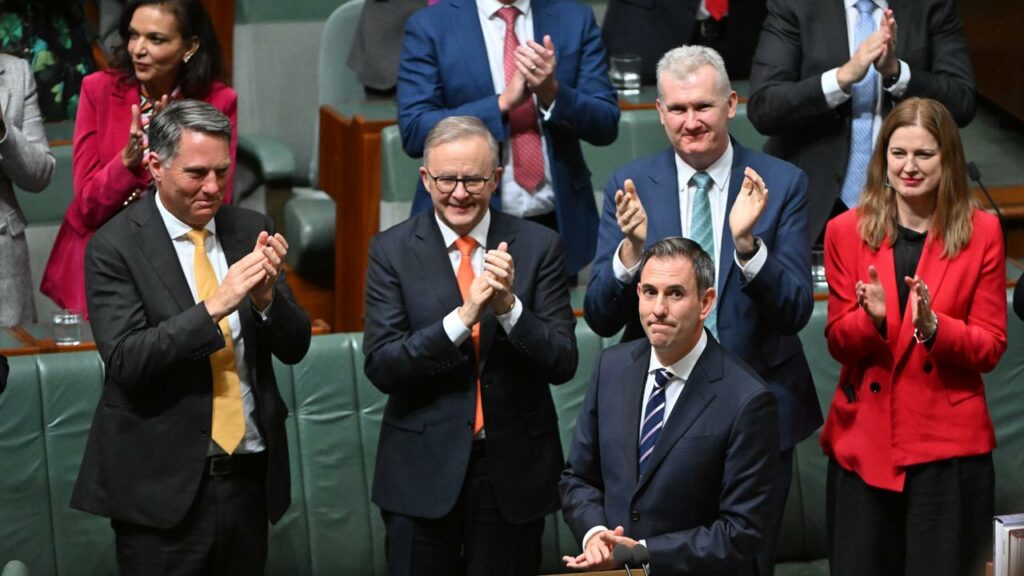Chalmers defends budget criticism of not enough support
Andrew Brown and Tess Ikonomou |

Treasurer Jim Chalmers has defended the federal budget from criticism it didn’t go far enough to help middle Australians during a period of high inflation.
Dr Chalmers said his second budget, which delivered a $4.2 billion surplus in 2022/23, had directly targeted Australians who were the most vulnerable to the rising cost of living.
“We are confident we got the balance right – giving people a bit of help without making the cost challenge worse,” he said on Wednesday.
“We are supremely confident that the budget we handed down last night will take some of these cost-of-living pressures off without adding to inflation.”
The budget had a $14.6 billion cost of living package, which included a tripling of bulk billing incentives for GPs, a lift in JobSeeker payments of $40 a fortnight along with energy bill relief.
The treasurer said the budget was not designed to be a contest between different sections of society.
“I don’t really want to carve up Australians in different groups and try to pit them against each other,” he said.
“We want to support people who are doing it especially tough. At the same time as we support the legitimate aspirations of middle Australia.”
Budget deficits are predicted for the next three financial years, albeit smaller than previously anticipated.
The improved budget outcomes come after the government banked more than 80 per cent of revenue gains driven by high commodities prices and a strong labour market.
Prime Minister Anthony Albanese said the budget had provided targeted support.
“It does provide a strong foundation we need going forward, taking pressure off families, targeting the most vulnerable while not adding to inflationary pressure,” he said.
“This is a budget that provides the support where it is needed, when it is needed right now, as well as building for the future.”
Opposition Leader Peter Dutton said the budget would add to interest rate pressures on already stressed middle-income households.
“Under this budget, at the very least, we know that interest rates will be higher and for longer, which is going to be a double whammy for Australian families,” he told Sky News on Wednesday.
“For families, they are struggling at the moment, big time, and there’s nothing at all for them in this budget.”
There will be energy relief worth $3 billion with five million households set to receive up to $500 in assistance, while one million businesses will receive up to $650.
The energy relief means price increases for electricity will be 25 percentage points lower than expected, while gas prices rises will be 16 percentage points lower.
Shadow treasurer Angus Taylor said households would still pay more for energy.
“Labor’s failed to deliver on its $275 electricity price reduction. It is clear in the budget now, that’s a broken promise,” he said.
“What we want to see from the government is taking pressure off inflation. This is not a budget that does it.”
The Australian Council of Social Service said while the extra bulk billed GP visits, cheaper medicines and help for single parents was welcome, JobSeeker remained one of the lowest unemployment payments in the OECD.
The Australian Chamber of Commerce and Industry said it was a credible budget, but more business incentives were needed.
AAP